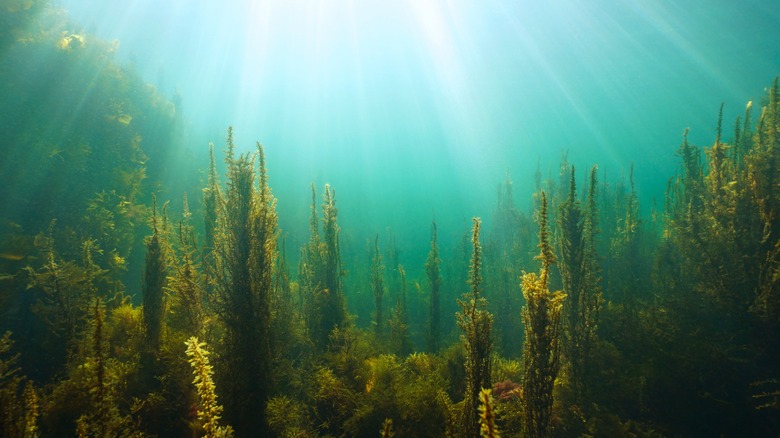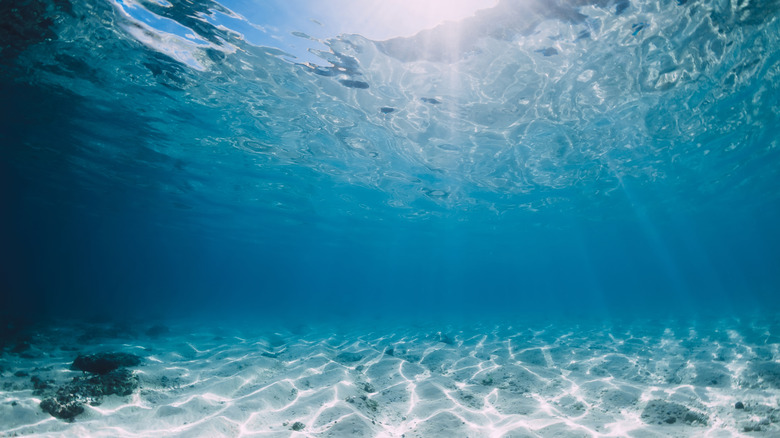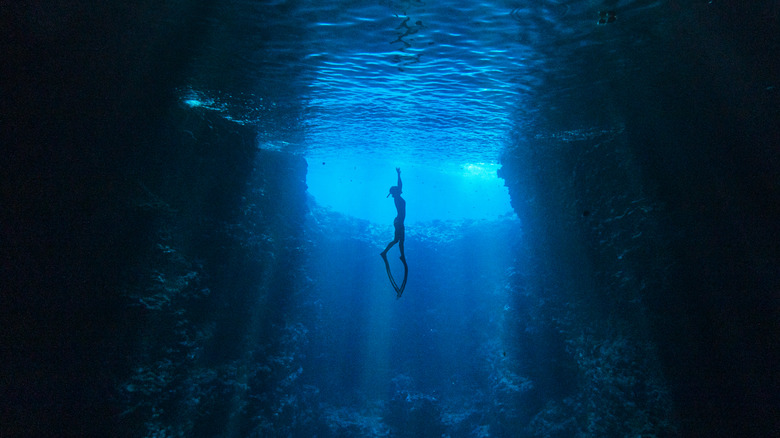The Bloop: The Strange Ocean Sound Scientists Couldn't Explain
As Ireland's Dara Ó Briain once joked on YouTube, "Science knows it doesn't know everything, otherwise it'd stop." The world is full of mysteries to solve and curious subjects to study, and no part of it is as mysterious or distant as the oceans. In fact, the longest animal in the world was recently discovered in our vast waters.
Over two-thirds of the planet consists of ocean, and its deepest known point, Challenger Deep in the Mariana Trench, has been recorded to be more than 36,000 feet deep. What this means, then, is that there's a mind-bogglingly large stretch of deep water around the globe, and there's really no telling what may be down there, undiscovered. This is exactly what made the "Bloop" so fascinating (and more than a little unnerving).
Let's dive into the mystery of this peculiar ocean sound, why it confused scientists so much, and what is now believed to have been the cause of it. That answer isn't as extraordinary as some may have liked, but it's an intriguing story nonetheless.
Where and when was the Bloop recorded?
With the depths of the oceans being so treacherous, opportunities to venture to the most distant points for research purposes are few and far between. Fortunately, probes, SONAR and other devices have made searching the oceans depths a little more manageable. One such device is the hydrophone, which hears noises beneath the surface of the water by converting them into electrical activity.
Back in 1997, hydrophones in the Pacific Ocean detected a very unusual sound. It came to be known as the Bloop, and though you'd think that blooping would hardly be an unusual thing to hear in an ocean, this particular sound was anything but typical. The National Ocean Service provides a recording of the sound, which has a peculiar, otherworldly quality. It was deemed to have been emanating from the ocean near Chile, but other than that, and the fact that it was of an incredibly low frequency, it wasn't immediately clear what made this booming disturbance in the ocean.
It turned out, it seems, not to have been a kraken, Godzilla, a dramatic car backfire in Atlantis, or anything else fanciful. The prospective cause, however, is something perhaps just as impactful.
From blue whales to icequakes
In 2017, the National Oceanic and Atmospheric Administration's Christopher Fox shared details of his experience discovering and investigating the Bloop. He explained on The Atlantic Selects' "The Bloop:" "... within ten, fifteen minutes, you have everybody in the whole team ... which is about a dozen of us, all gathered around trying to think of ... explanations." Fox went on to state that the sound was compared to that of blue whales, but that this was far louder than that. Which other avenues could be pursued?
In an attempt to find an answer, Fox said that he went as far as consulting what he dubbed "the very classified innards of the United States Navy Intelligence people," only to be told that the sound wasn't a secret military project either. Almost a decade of research after the Bloop was heard, the NOAA declared in 2005 that the sound appeared to have been an icequake. Specifically, the creation of an iceberg.
The PMEL Acoustics Program notes that the Bloop was similar to calving sounds recorded in the area. The NOAA's Robert Dziak reiterated to Wired in 2012 that such sounds are very common in colder areas of the sea, "created by the cracking and melting of sea ice and ice calving off glaciers into the ocean," and that this is exactly what the Bloop seemed to have been. A remarkable ocean event, certainly, but ultimately seemingly a logical and natural one.


